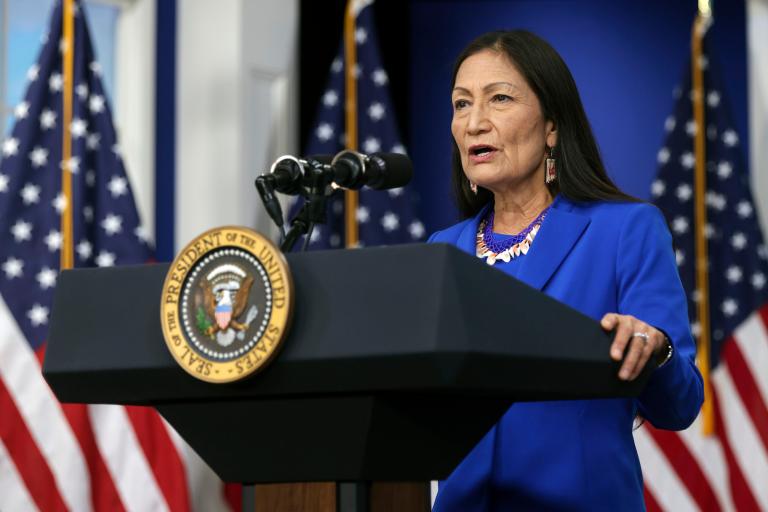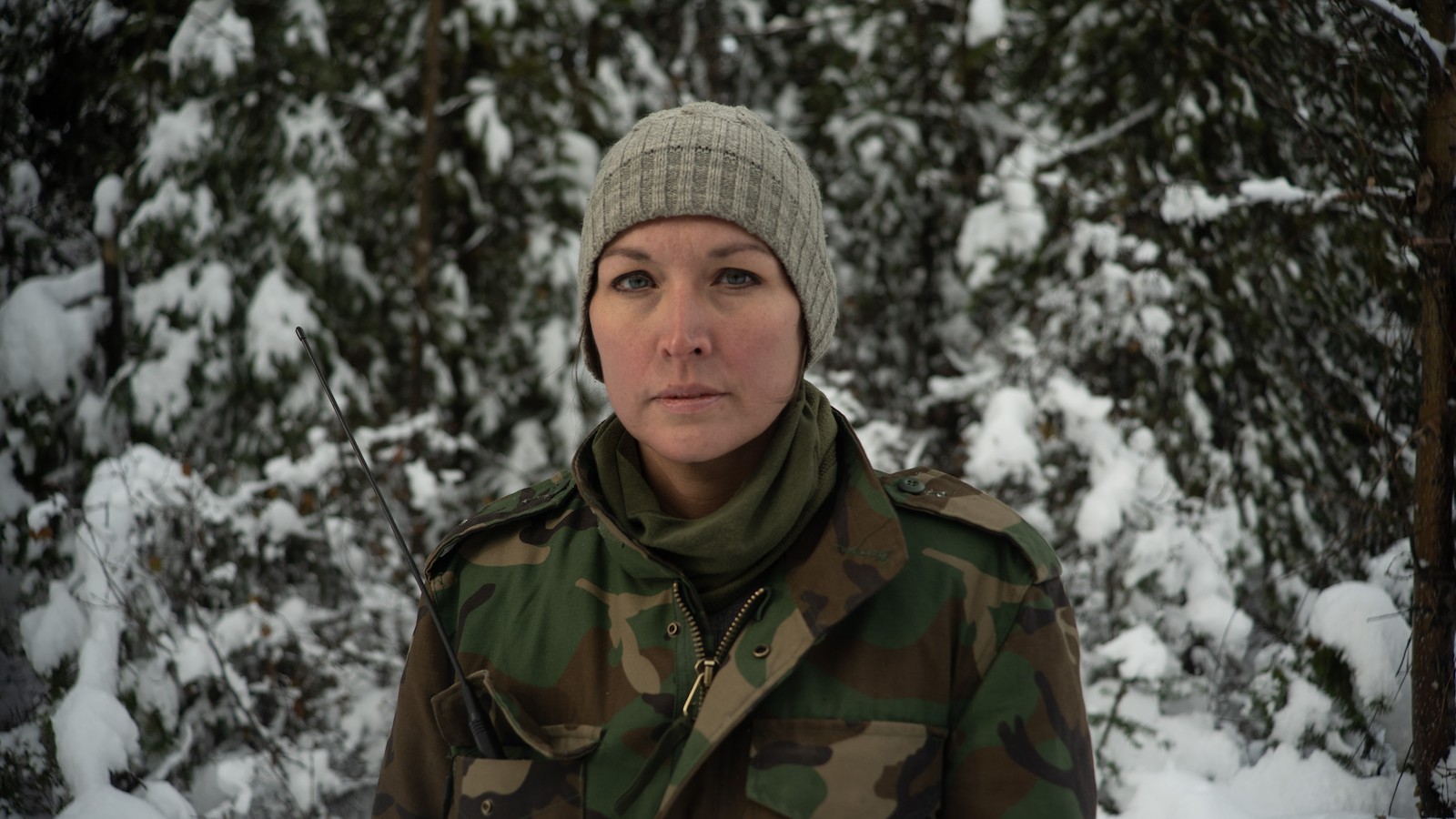Indigenous land defenders were in a British Columbia court Monday after they were arrested during police raids that took place on Wet’suwet’en territory Friday. During the raids, Royal Canadian Mounted Police (RCMP) arrested 29 people, including Wet’suwet’en and Haudenosaunee land defenders, two people described as elders, two photojournalists and a supporting chief from the Gidimt’en clan.
Those arrests, part of an ongoing, government-sanctioned effort to enable the construction of a proposed pipeline on unceded Wet’suwet’en territory, have essentially cleared the way for the project to proceed unhindered.
In recent weeks, tensions have escalated in the years-long conflict surrounding the Coastal GasLink (CGL) pipeline, which is being built on the Wet’suwet’en yintah, or territory. The Wet’suwet’en hereditary chiefs — who represent a traditional government that has been recognized by the Supreme Court of Canada — oppose the project and have made repeated efforts to evict the company, TC Energy, and its subcontractors from the territory.
On November 14, after CGL ignored an order from the Gidimt’en clan to leave the territory, land defenders used a CGL construction vehicle to demolish a segment of road leading to remote man camps used to house hundreds of construction workers. The RCMP responded by sending dozens of officers from outside the area who raided multiple encampments at the end of last week after establishing an “exclusion zone” — an area that has been off limits to Wet’suwet’en and non-Wet’suwet’en people, including journalists, since last week’s raids began.
In a press release, Jennifer Wickham, the media coordinator for the Gidimt’en camp, said CGL is seeking conditions that would bar Sleydo’ — a supporting chief from Gidimt’en clan and a prominent leader of the counter-pipeline movement who was arrested Friday — from returning to her home on Wet’suwet’en territory where she lives with her three children and her husband, a Haida man who was also arrested last week, despite not being actively involved in the recent blockades.
Wickham said CGL also challenged the First Nation status of Sleydo’ and another Wet’suwet’en woman, a legal strategy designed to keep land defenders out of the area that Wickham called “completely racist and sexist” in a statement. “Allowing a private corporation to determine two Indigenous womens’ identities and allowing this corporation to deny our inherent rights to be Wet’suwet’en on our territory is a very dangerous precedent,” Wickham added.
Indigenous-rights advocates have condemned the RCMP’s history of enforcing injunctions against Indigenous land defenders on behalf of companies in resource-extractive industries.
“By dragging us through court and using injunctions against us, our Indigenous rights are being violated and are being given less consideration than climate-destroying corporations,” said Grand Chief Stewart Phillip (Penticton Indian Band), president of the Union of British Columbia Indian Chiefs, in a statement.
According to the RCMP, the Indigenous-led blockades “jeopardized the safety and wellness” of construction workers who were housed at the man camps, forcing the agency to mobilize what it dubbed a “rescue mission” in a press release.
“RCMP should be assisting flood victims and communities, not out invading our Territory and arresting our peaceful people and supporters,” read a statement from the Wet’suwet’en hereditary chiefs, who referenced the devastating floods that washed through British Columbia last week.
On November 14, land defenders gave the company eight hours, plus a two-hour extension, to vacate the area. Reports suggest that the company chose not to inform construction workers that the hereditary chiefs had ordered all workers to leave.As news of the raids spread, protests and transportation blockades sprung up throughout Canada. An Indigenous-led demonstration blocked a railway in Toronto for three hours Sunday, days after a highway in Caledonia, Ontario was blocked by protestors standing in solidarity with the Wet’suwet’en land defenders.
As of Monday evening, multiple people had been released from custody, including Sleydo”s husband, Cody Merriman, and photojournalists Amber Bracken and Michael Toledano.




